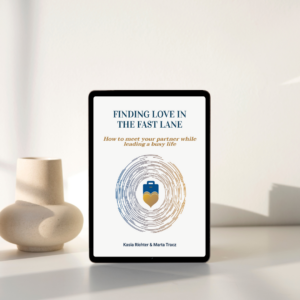In today’s fast-paced world, where distractions abound and stress levels are high, mastering mindfulness has become increasingly important for maintaining mental well-being. Mindfulness, often associated with meditation and being present in the moment, offers a powerful tool for enhancing overall quality of life and managing emotional and mental health effectively.
What is Mindfulness and Why is it Important?
Understanding the definition of mindfulness is crucial in realizing its significance in daily life. Mindfulness can be described as the practice of bringing one’s attention to the present moment without judgment, acknowledging thoughts and sensations that arise.
The benefits of mindfulness are vast, ranging from stress reduction to improved focus and emotional regulation. By cultivating a mindful attitude, individuals can experience greater clarity, enhanced well-being, and a deeper connection to themselves and the world around them.
Mindfulness can also play a key role in helping individuals cope with anxiety and depression. By practicing mindfulness techniques, individuals can learn to observe their thoughts and feelings without becoming overwhelmed by them, thus promoting a sense of inner peace and calm.
How to Practice Mindfulness in Daily Life
Simple mindfulness exercises for beginners can serve as a starting point for integrating mindfulness into daily routines. These exercises, such as focusing on the breath or body sensations, can help individuals develop a greater sense of awareness and presence in the moment.
Bringing your attention to the present moment is a core aspect of mindfulness practice. By staying mindful of the current experience, individuals can break free from the cycle of rumination and worry, allowing for a more grounded and centered state of being.
Using mindfulness to manage thoughts and emotions involves observing them with a non-judgmental attitude. This practice enables individuals to respond to challenging emotions with greater clarity and compassion, leading to improved emotional well-being.
Exploring Different Mindfulness Techniques
Body scan meditation is a mindfulness-based practice that involves systematically scanning the body for sensations, promoting relaxation and improved physical well-being. This technique can help individuals reconnect with their bodies and cultivate a deeper sense of self-awareness.
Mindfulness meditation, with its focus on breath awareness and being present in the moment, is a powerful tool for reducing stress and promoting mental clarity. Regular practice of mindfulness meditation can enhance resilience to life’s challenges and improve overall mental health.
Mindfulness-based practices, such as yoga and tai chi, offer holistic approaches to mindful living, integrating movement with mindfulness to promote physical, emotional, and mental well-being. These practices can be valuable additions to a mindfulness repertoire, enhancing the benefits of mindfulness practice.
Benefits of Combining Mindfulness and Meditation
Understanding the relationship between mindfulness and meditation can shed light on the synergistic effects of these practices on overall well-being. When combined, mindfulness and meditation work harmoniously to deepen self-awareness, reduce stress, and enhance emotional regulation.
By integrating mindfulness and meditation into daily life, individuals can experience profound shifts in their mental outlook and emotional resilience. These practices offer practical tools for managing stress, increasing focus, and cultivating a sense of inner peace and balance.
Practical tips for integrating mindfulness and meditation into daily life include setting aside dedicated time for practice, exploring different techniques, and seeking guidance from experienced teachers. By making mindfulness and meditation a regular part of one’s routine, individuals can reap the myriad benefits of these transformative practices.
Seeking Guidance from a Mindfulness Teacher
When seeking guidance from a mindfulness teacher, it is essential to look for someone with experience, compassion, and a deep understanding of mindfulness practices. A mindfulness teacher plays a pivotal role in facilitating personal growth and development, offering insights and support along the mindfulness journey.
The role of a mindfulness teacher extends beyond imparting knowledge and techniques; they serve as mentors and guides, helping individuals navigate the complexities of their inner world and cultivate a more mindful way of living. By working with a mindfulness teacher, individuals can receive personalized support and encouragement to deepen their mindfulness practice.
A mindfulness teacher can support your mindfulness journey by providing valuable feedback, offering tailored exercises, and creating a supportive environment for growth and self-discovery. With the guidance of a skilled teacher, individuals can enhance their mindfulness practice and cultivate a more grounded, balanced, and harmonious way of being.
FAQ
What is the goal of mindfulness?
The goal of mindfulness is to focus your mind on the present moment, fully experiencing it without judgment. This practice can help reduce stress and enhance overall wellbeing, leading to a more balanced and fulfilling life.
How can mindfulness help reduce stress?
Mindfulness can help reduce stress by encouraging you to focus on your breathing, relax your mind, and become more aware of your thoughts and feelings. Through techniques such as mindfulness-based stress reduction and acceptance and commitment therapy, you can learn to handle stress more effectively.
What are some simple mindfulness exercises I can try?
Simple mindfulness exercises include focusing on your breathing, practicing walking meditation, and engaging in guided mindfulness sessions. These techniques are easy to incorporate into your daily routine and can be part of mindfulness practices that enhance your wellbeing.
How does mindfulness-based cognitive therapy differ from other forms of mindfulness?
Mindfulness-based cognitive therapy combines traditional mindfulness exercises with cognitive behavioral techniques to help combat depression and anxiety. This approach, supported by systematic review and meta-analysis, offers a structured way to integrate mindfulness into mental health therapy.
What are the benefits of mindfulness meditation?
The benefits of mindfulness meditation include reduced anxiety, improved emotional regulation, enhanced concentration, and better sleep. Practicing mindfulness meditation regularly can also help reduce symptoms of PTSD and other stress-related conditions as outlined by the science of mindfulness.
Who can benefit from mindfulness help?
Mindfulness help can benefit anyone, regardless of age or background. From students and professionals looking to manage stress to individuals seeking therapy for mental health issues, mindfulness-based interventions can be a complementary and alternative method to conventional treatments.
How can I start a mindfulness practice?
To start a mindfulness practice, you need to set aside a few minutes each day for mindfulness exercises. Begin with simple techniques such as closing your eyes and focusing on your breathing. Gradually incorporate other exercises, and consider joining guided mindfulness sessions to deepen your practice.
What is walking meditation, and how do I practice it?
Walking meditation involves being mindfully aware throughout your walking experience. Focus on the sensation of your feet touching the ground, your breath, and the sights and sounds around you. This form of meditation practice helps bring mindfulness into your daily activities.
How does mindfulness-based stress reduction work?
Developed by Jon Kabat-Zinn, mindfulness-based stress reduction involves an eight-week program incorporating mindfulness meditation, body scanning, and yoga. This structured approach aims to help reduce stress by teaching individuals to live more mindfully, thus improving their overall quality of life.
Can mindfulness exercises be enough as stand-alone therapy?
While mindfulness exercises can significantly improve mental and physical health, they are most effective when used in conjunction with other therapies such as cognitive behavioral therapy or acceptance and commitment therapy. However, practicing mindfulness exercises as stand-alone methods can still offer substantial benefits in reducing stress and enhancing wellbeing.








